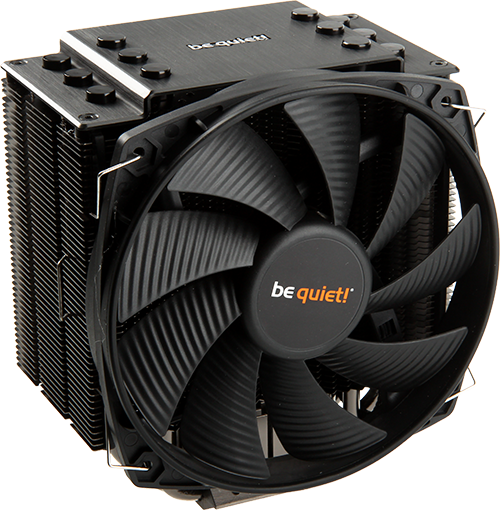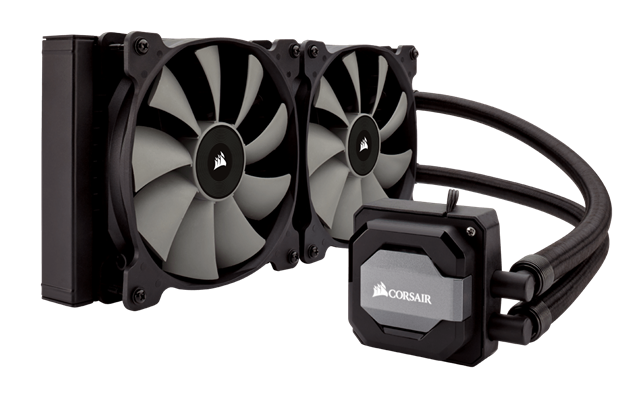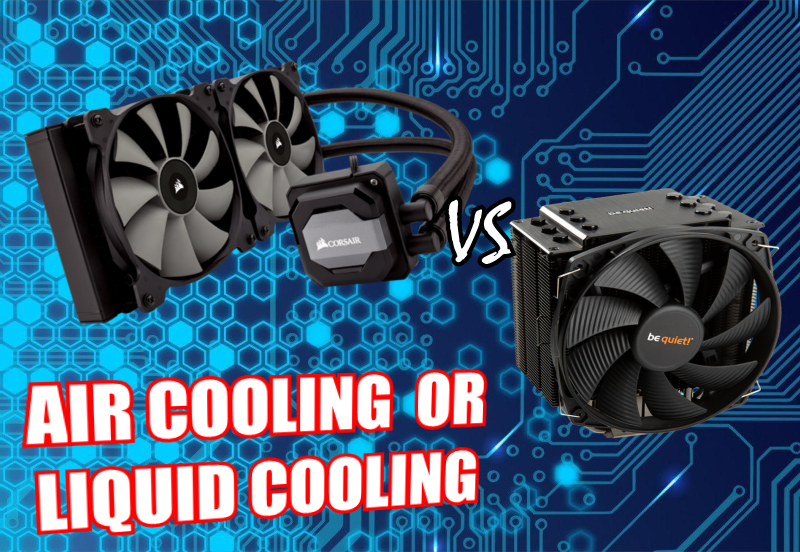It is very common that all CPU/GPU/SOC chips can be very hot and therefore every purchase of a semicondutor chip will be equipped with a cooling system for PCs, mobile phones, servers and other electronic equipment/components. That is why the importance of using a cooling system that suits each need, which for PC will be divided into two category, which is Liquid or Water Cooling & Air Cooling. After that, the question arises which is the best of the two cooling systems?
Well, for this question, the answer is maybe you can guess it, it depends. Why does it depend, because each cooling system, both liquid cooling & air cooling, has its own advantages and disadvantages that you can consider. For that we will start from the basics, how the cooling of each system works, starting from the heat transfer from beginning to end. We start from the most common, the air cooling or cooling systems with air as medium.

- Air Cooling / Cooling System with Air
The air cooling system is the oldest system and until now it is still used because of its effectiveness & cheaper because it uses air as a medium. Furthermore, cooling air coolers will usually be easier to install and apply, even by beginners. Generally, air coolers can handle CPU / GPU cooling from low end system to high end as well (the optimal one usually uses a combination of base and copper pipes connected to an aluminum heatsink). The disadvantage of this system is the size of the heatsink which is rather large and wide (although there is a low profile version) when compared to a liquid cooler, it has such as a water block that is in direct contact with the heat source (more space-saving). So sometimes for air cooling system it’s not very good in terms of PC CPU aesthetics (subjective).

- Water or Liquid Cooling System
Water Cooler or also known as Liquid Cooler is the latest cooling technology system that involves liquid to transfer heat directly through the Water Block / Metal Base which is in direct contact with the CPU / GPU. This method is allegedly more efficient in transferring heat from the chip core, although the high end air cooler can match the efficiency of the liquid cooler in terms of lowering the temperature for improved performance this day. At this system, the liquid cooler requires a radiator to remove heat from the liquid which later when it cools down will flow again to the chip to absorb heat again (Many radiator has various variants from 120mm, 240mm, to even larger ones). With this system, the liquid cooler can absorb heat and dissipate heat more optimally, so the chip will have headroom to improve performance again. The disadvantage of Liquid Cooler is that it is more expensive than Air Cooler, despite the installation of Liquid Cooler can make your system better in terms of aesthetics (because it does not use a heatsink in a PC) and again your PC will be quieter (not noisy, because there are fewer fans installed).
So which system is suitable for me?
So the point will depend on your budget & the preferences of the system you want to achieve. If you have a budget that is not too high and don’t bother about noise & do some overclocking on your system then Air Cooler is the answer. But if you want the best performance both for overclocking, silent and aesthetic systems, maybe you will like liquid coolers.


